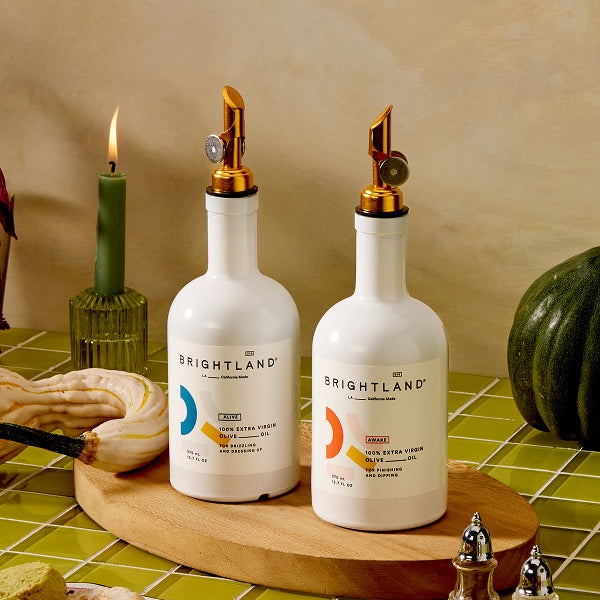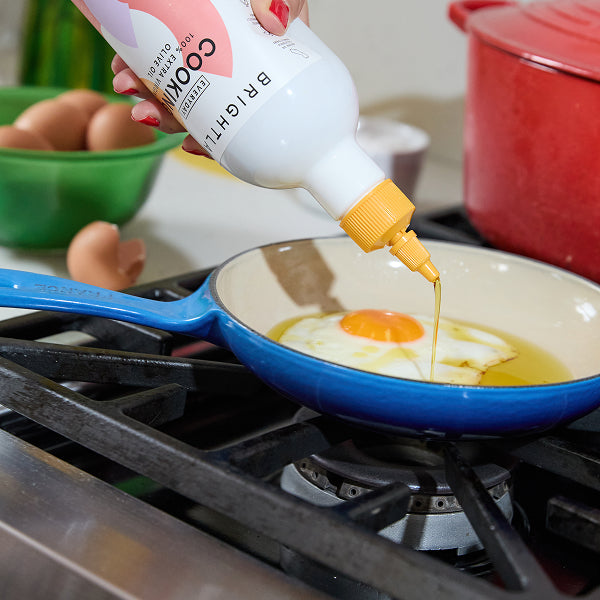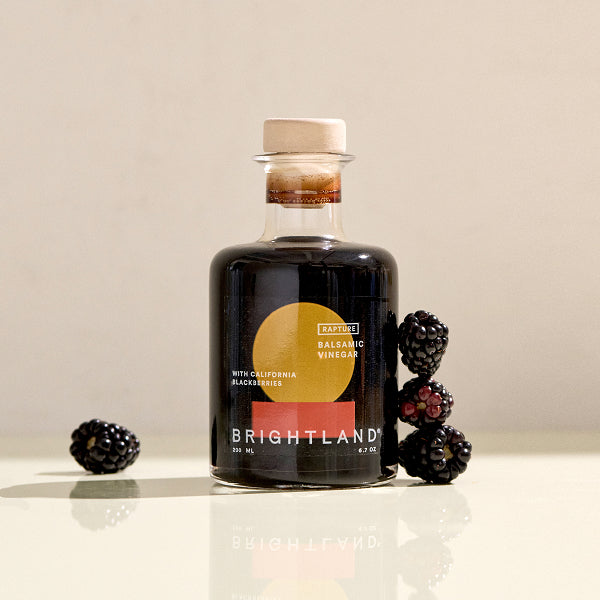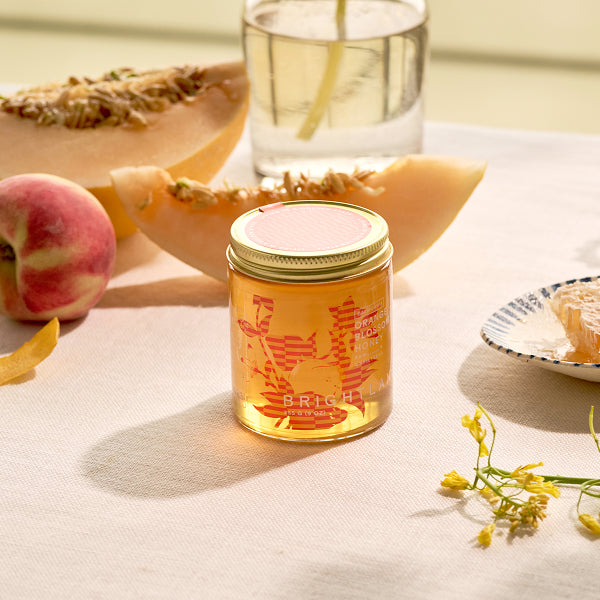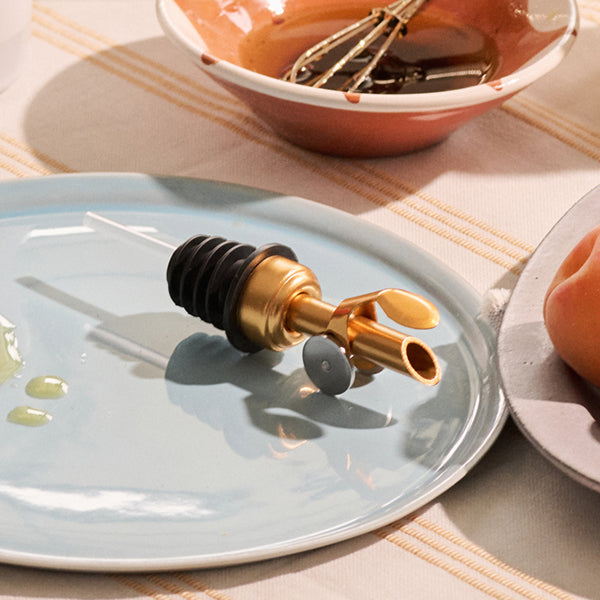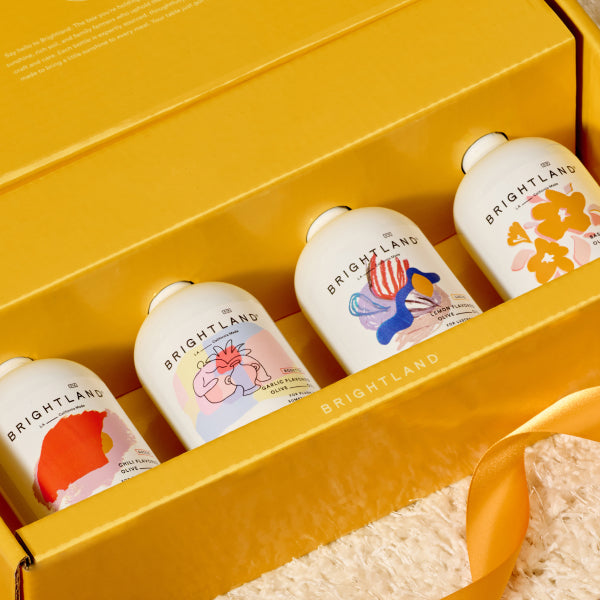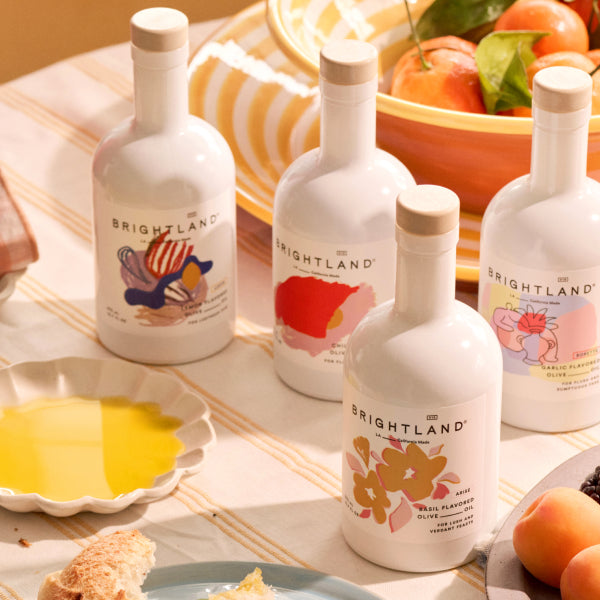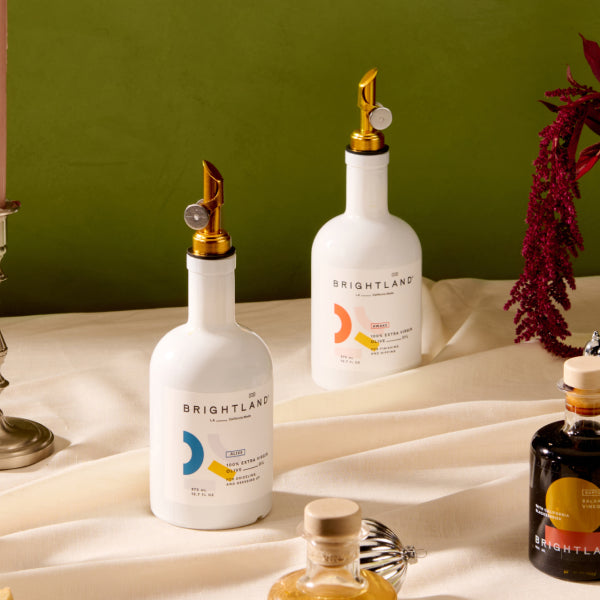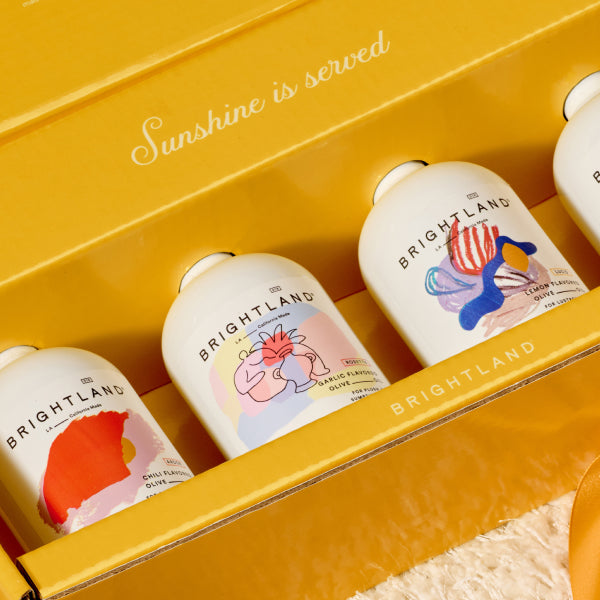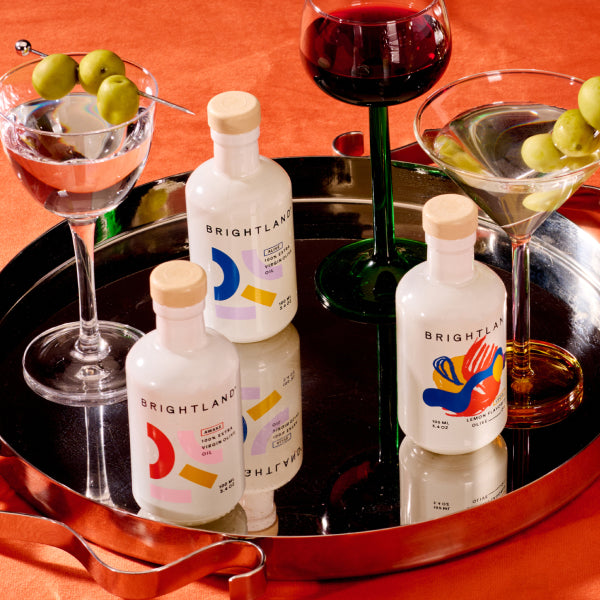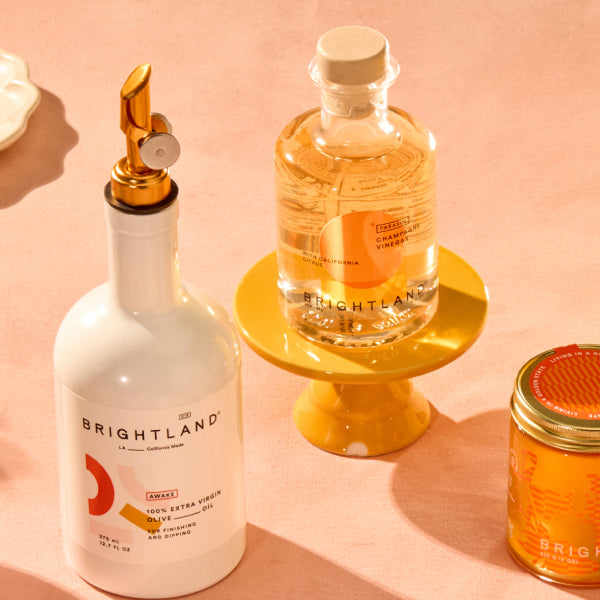Let's start with the basics.
There are five kinds of olive oil: extra virgin, virgin, refined, pomace, and lampante.
You only really need to know one and that's extra virgin. Why? Quite simply, it's the best. There are strict requirements to be certified as extra virgin. The olives must be fresh when pressed, extracted by non-chemical means, low in fatty acid, and without defects. If you think of the Westminster Dog Show, extra virgin is the really fancy poodle with a puffy tail and a bounce in her step.
[close type="rte"] [open type="images" count="1" small="true"]
If you have to diverge from extra virgin, your next grade of olive oil is virgin. It has a similar freshness to extra virgin, but the standard is much lower for the acidity level, so it tends to have a blander, milder taste. Think of virgin olive oil like a pre-packaged salad from the grocery store. It's not as punchy as a Sweetgreen, but it's not absolutely terrible.
Watch out for oils labeled as "pure" or "light" — these are marketing words used to veil the fact that the oil is not virgin or extra virgin and therefore not fresh.
In the book Extra Virginity, author Tom Mueller discovers that a measly two percent of olive oil worldwide qualifies as extra virgin. A shocking ninety percent of the world's olive oil is "lampante", which directly translates to "lamp oil" (tells you everything you need to know!). It's made from rotten olives, then diluted with a slew of other oils that have nothing to do with olives.
[close type="rte"] [open type="images" count="1" small="true"] [close type="images"] [open type="rte"]
[close type="images"] [open type="rte"]
Contrary to what the name suggests, vegetable oil does not come from vegetables. It's defined as an oil that is extracted from plants. The ones you've likely seen pop up the most are corn, canola, palm, rapeseed, safflower, sunflower, cottonseed and soybean oil. These oils are highly refined and processed. They contain high levels of saturated fat, and are characterized by a high smoke point* (more on that later), which makes them a natural default for cooking.
Avoid:
Safflower
Sunflower
Soy
Corn
Cottonseed
These oils are often refined (i.e. “purified” by way of chemical means), and high in omega-6, which is good in small doses, but not at the level in these oils. Excess omega-6 can promote obesity, heart disease, and inflammation.
Okay to use, but proceed with eyes open:
Canola (actually derived from rapeseed. It's called canola, because, well, it sounds a lot better.)
Rapeseed
Palm
While palm oil is okay on the body, it’s not okay on the earth. The global demand for palm oil has given way to massive plantations, typically in rainforest and wetland regions where there are dense animal populations, including many endangered species. To protect these precious ecosystems, we must do our part to reign in our palm oil consumption and be less dependent on it.
Outside of olive oil, there are many oils that are nutritious, unprocessed, unadulterated. Some of those are also great cooking oils. Here is our list of "friendly" oils. The starred oils can be used in cooking, as their smoke points are higher and they work well under high heat.
Avocado oil*
Macademia nut oil*
Almond oil
Coconut oil
Grapeseed oil
Sesame oil
Smoke Point
Every oil or fat has what's called a "smoke point." This is the temperature at which an oil will burn. Why does it matter? When an oil is cooked beyond its smoke point, it can lose both nutritional value and taste. A burnt oil can release chemicals that result in a bitter flavor, as well as free radicals that are harmful to your body's digestive system.
There is a misconception in the industry that olive oil has a low smoke point. The answer to this is both yes and no. High quality, extra virgin olive oil can boast a smoke point up to as high as 420 degrees. The reason for this misconception is that most olive oil is not high quality, and non-quality, non-extra virgin olive oil has a very low smoke point. Our olive oils at Brightland have a smoke point of 410 degrees, so cook away!
[close type="rte"] [open type="images" count="1" small="true"]
Freshness First
The single most important factor in selecting an oil is freshness. Oils are not wines or vinegars. They do not age. In fact, they perish quite quickly. Look to harvest dates to guide you, and always pay attention to the small print.
At Brightland, we are passionate about and committed to clean oils. All our oils are sourced from the year’s most recent harvest. We've mined the industry to find truths and bust myths. If you have more questions, we are here to answer them!
[close type="rte"]
